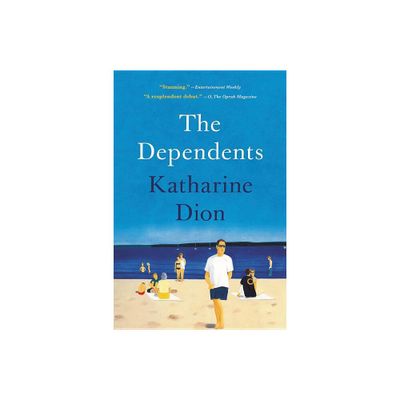Home
Functional Gaussian Approximation for Dependent Structures
Loading Inventory...
Barnes and Noble
Functional Gaussian Approximation for Dependent Structures
Current price: $145.00


Barnes and Noble
Functional Gaussian Approximation for Dependent Structures
Current price: $145.00
Loading Inventory...
Size: OS
*Product Information may vary - to confirm product availability, pricing, and additional information please contact Barnes and Noble
Functional Gaussian Approximation for Dependent Structures
develops and analyses mathematical models for phenomena that evolve in time and influence each another. It provides a better understanding of the structure and asymptotic behaviour of stochastic processes.
Two approaches are taken. Firstly, the authors present tools for dealing with the dependent structures used to obtain normal approximations. Secondly, they apply normal approximations to various examples. The main tools consist of inequalities for dependent sequences of random variables, leading to limit theorems, including the functional central limit theorem and functional moderate deviation principle. The results point out large classes of dependent random variables which satisfy invariance principles, making possible the statistical study of data coming from stochastic processes both with short and long memory.
The dependence structures considered throughout the book include the traditional mixing structures, martingale-like structures, and weakly negatively dependent structures, which link the notion of mixing to the notions of association and negative dependence. Several applications are carefully selected to exhibit the importance of the theoretical results. They include random walks in random scenery and determinantal processes. In addition, due to their importance in analysing new data in economics, linear processes with dependent innovations will also be considered and analysed.
develops and analyses mathematical models for phenomena that evolve in time and influence each another. It provides a better understanding of the structure and asymptotic behaviour of stochastic processes.
Two approaches are taken. Firstly, the authors present tools for dealing with the dependent structures used to obtain normal approximations. Secondly, they apply normal approximations to various examples. The main tools consist of inequalities for dependent sequences of random variables, leading to limit theorems, including the functional central limit theorem and functional moderate deviation principle. The results point out large classes of dependent random variables which satisfy invariance principles, making possible the statistical study of data coming from stochastic processes both with short and long memory.
The dependence structures considered throughout the book include the traditional mixing structures, martingale-like structures, and weakly negatively dependent structures, which link the notion of mixing to the notions of association and negative dependence. Several applications are carefully selected to exhibit the importance of the theoretical results. They include random walks in random scenery and determinantal processes. In addition, due to their importance in analysing new data in economics, linear processes with dependent innovations will also be considered and analysed.


















